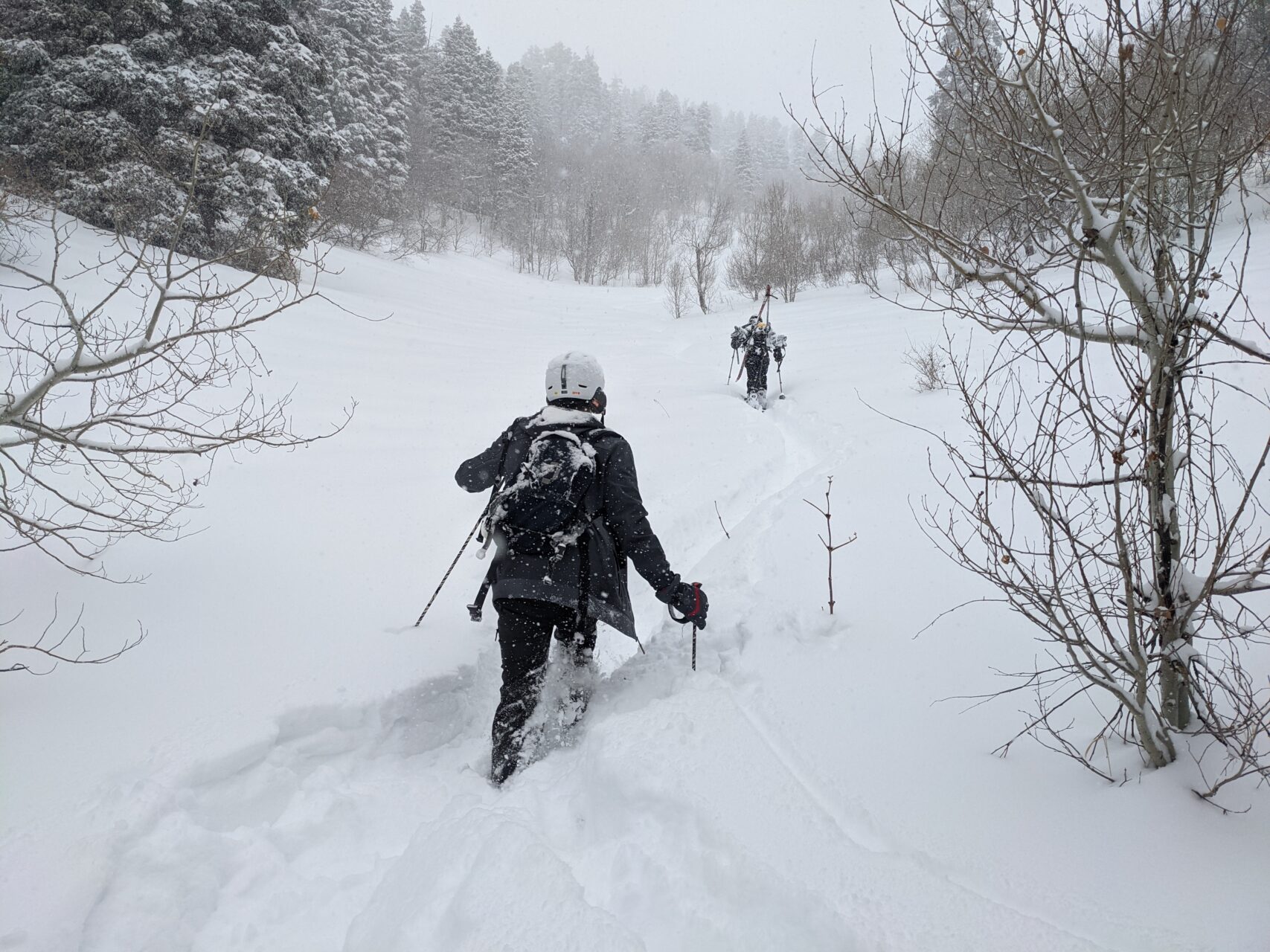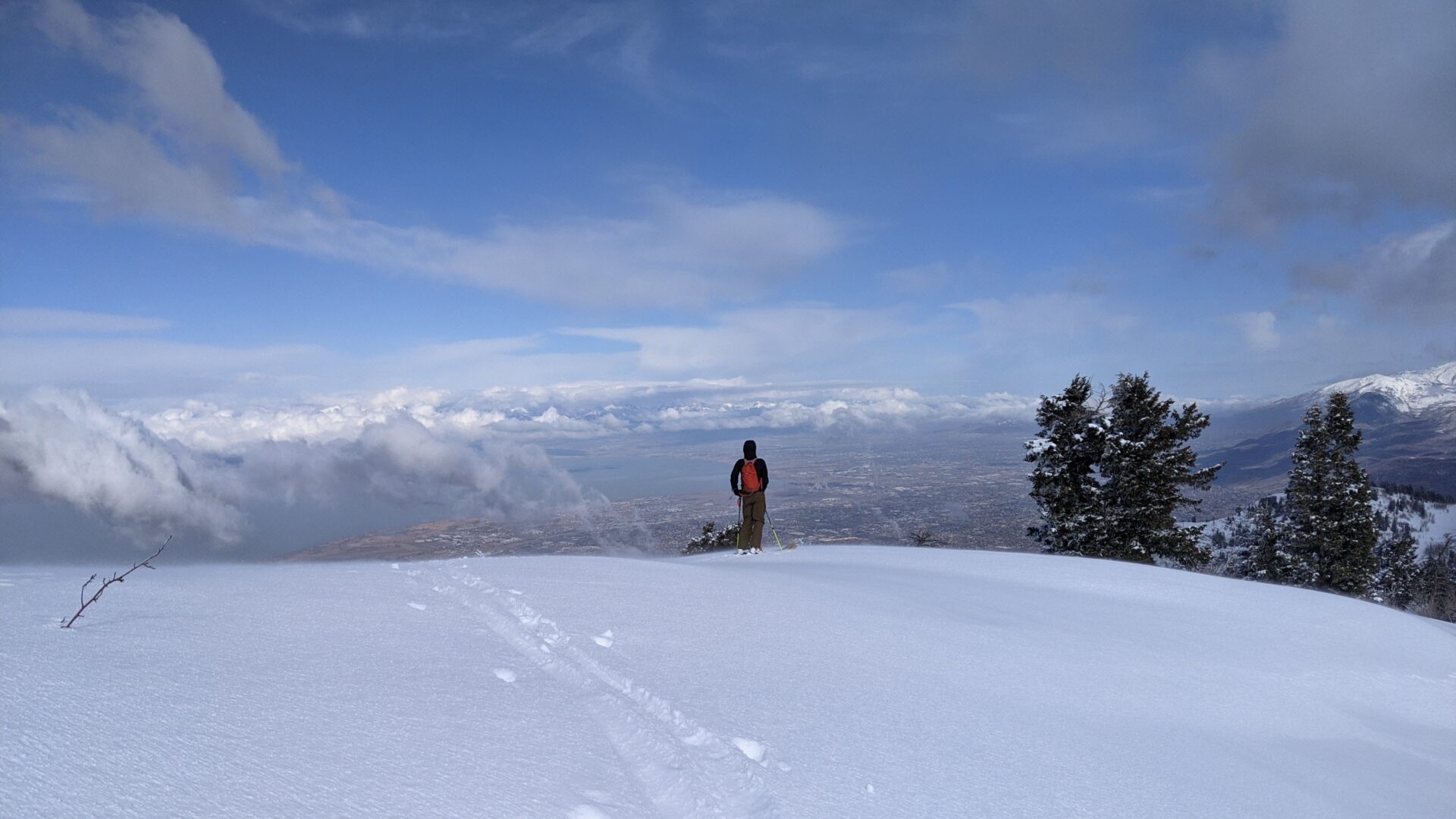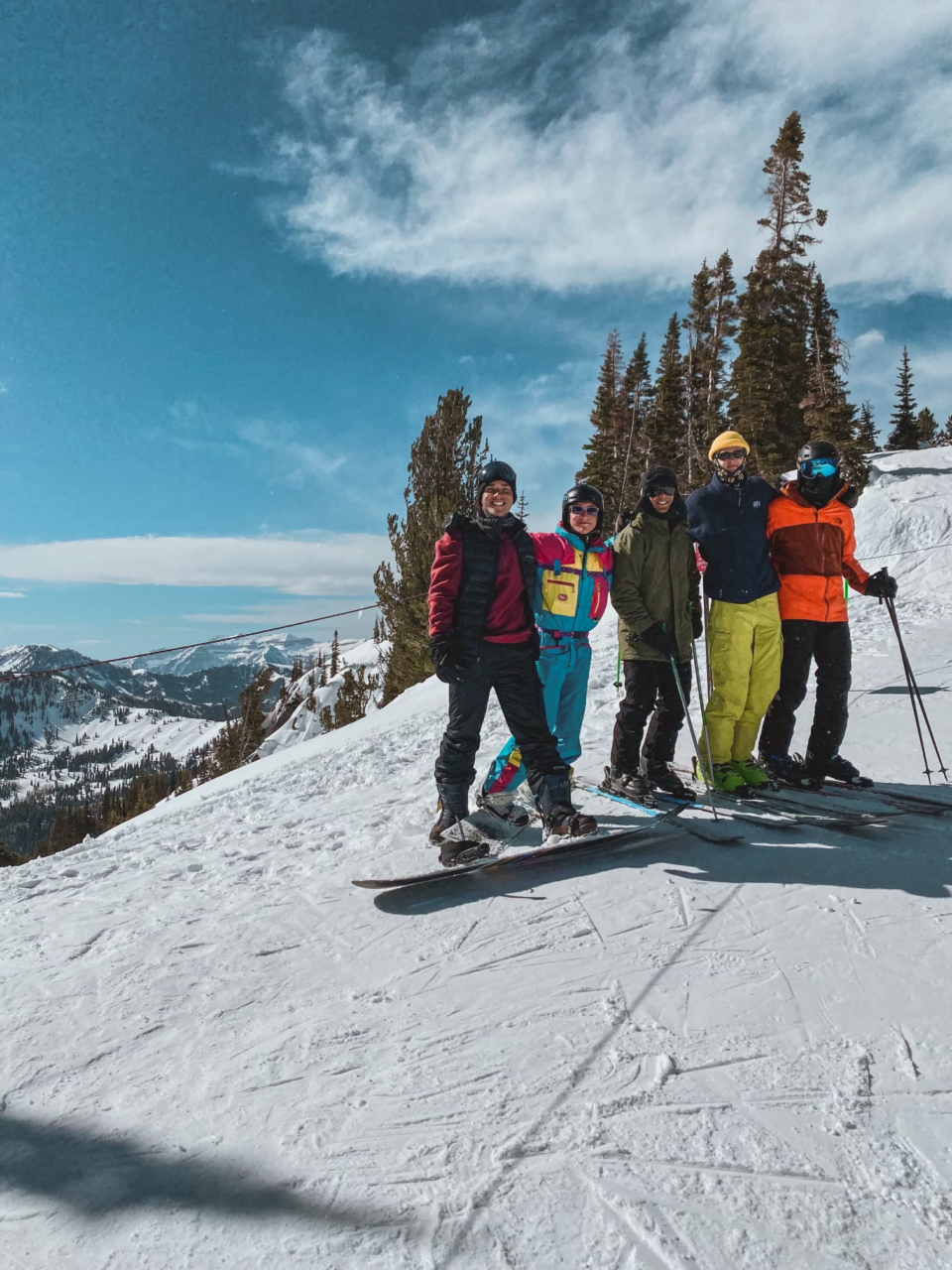
There’s snow place quite like Utah in the winter.
With October barely in the rearview mirror, BYU campus turned into a 560 acre snow globe on Wednesday, in what may have been this season’s kickstarting snowfall. Some students reveled in the flurrying flakes as they emerged from midday classes. Others marched solemnly back to their dorms with stooped heads and even more sullen attitudes, with any last hope of autumnal longevity out the window.
For winter averse people of any age — particularly college-going young adults — the season often ushers in an annual resurgence of seasonal depression. However, for BYU’s powder-loving, gnar-shredding, ski-bumming students, winter is welcomed with open arms, and ear-to-ear grins as Utah ski resorts begin to open their lifts.
College students from across the U.S. indicate that skiing and snowboarding elevates their mental health, improves friendships and affects their college classroom experience prior to and during the semester, particularly when it comes to classes — or the lack thereof.
As south Utah ski resort Brian Head opens its lifts this week on Nov. 4, the rest of the state is preparing for opening days ranging from Nov. 18 at Alta, to Dec. 9 at Sundance. When asked how the first snowfall of the season makes them feel, snow-loving BYU students shared their elation at the turn of the season.

“It makes me so excited for winter. I love winter. I actually get a little depressed in the spring when I need to move on from skiing and have to do other things,” Josh Martineau, a third-year BYU law student said. “I love the long nights … if you’re skiing at 4 a.m., you get to enjoy the stars in the morning instead of bright sunlight. That’s magical. It’s hard to beat skiing into the sunrise.”
Martineau, an avid split boarder, grew up hitting the slopes with his family multiple times a week. This season, he has chosen to forego a resort pass, instead shifting his focus to the backcountry of the local mountains.
For BYU communication disorders student Kate Moulton, skiing has become a way to ward off the winter woes.
“Winters are harder than summers for my mental health,” Moulton said. “But finding something that happens only in the winter that I can look forward to is really awesome. It makes winter not so bad.”

Moulton, originally from Ohio, learned to ski in 2021. After thrifting all her snow gear from Facebook Marketplace and buying an Ikon Pass, she says she became hooked. Utah-based snow lovers like Martineau and Moulton are not the only ones experiencing the positive effects of winter sports. According to multiple international studies, snow sport-induced happiness is a universal experience.
A 2017 qualitative study found that skiing and snowboarding provides mental health benefits through “challenging oneself, experiencing nature, contributing to deep friendships … a counterbalance to everyday life and escape from restrictions.”
BYU student and lacrosse team member Bubba Walker, is just one young adult who experiences the positive impact snow sports has on friendships.
“It brings your friends together a lot,” Walker said. “If you get a crew of guys or girls or whoever, just a crew of people that wanna go, you see some friends maybe more often than you would have if you hadn’t been skiing with them.”
In addition to positive relational impacts, a 2013 study explored the effects of freedom-seeking in extreme sports, and deduced that snow sports are one way that individuals explore fundamental human values.
For college students who fundamentally value both good grades and good fun, the competing values often come head-to-head as morning snow reports are released. To skip class, or not to skip class? That becomes the golden question.

“Once it snows a ton, you just kind of start looking at your week and looking at the snow report and seeing where you can afford to miss school, instead of thinking ‘oh, when am I going to study for my midterm?’” Walker said.
For students like Walker, skipping school for a good powder day is not uncommon, whether intentionally or unintentionally.
“I know lots of people who skip class regularly to go skiing,” Moulton said. “I did it once or twice last year.”
Between class schedules and BYU’s nine-year drought of snow days, spontaneous snow adventures often come at the cost of missing class. However, the coinciding of the regular ski season with the COVID-19 pandemic allowed students the unique opportunity to spend more time on the slopes due to one main factor — remote classes.
“I loved it, it was great,” Walker said of attending Zoom classes from the slopes. “You could go to the lodge, open your computer and Zoom in to the class for an hour during lunch and then go back out. It was one of the sickest ski seasons for that reason because you could go so much.”
Now that the COVID-19 pandemic has lulled and universities have returned to the classroom, avid skiers face an academics versus antics dilemma once again. However, this may not be a problem. BYU students shared how they overcome schedule logistics to maximize their time in the snow without sacrificing academic performance.
“If you’re just expecting that your only day’s gonna be Saturday, it just doesn’t work,” Walker said, of picking class schedules to utilize snowy days during the week. He said he and many of his friends that get ski passes plan their class schedules around the sport.
Moulton, who mountain bikes in the warmer seasons, said that she organizes her life similarly in the winter as she does in the summer by pre-planning her work schedule to accommodate leisure.
“I set up my schedule because I have my one thing that I’m going to be doing,” she said.

Martineau said it was also something he considered when planning a class schedule, and is excited at the prospect of not having class until the afternoons most days, so he can “get out and explore a little more before class.”
“I love going for a dawn patrol which means you leave at 4:15 in the morning and try and be back at class at 9:30,” he said. “So I’ve got just a few hours to go enjoy in the dark and early morning before your day starts.”
None of the students indicated that occasionally missing class to ski or snowboard affected their grades, but did mention some hesitancy at skipping regularly to uphold commitments.
While skipping school occasionally to ski or snowboard can be beneficial to mental health, students are reminded to be vigilant of adverse driving conditions as winter begins to settle in.
OpenSnow, an advanced subscription-based forecasting service, released this week’s snowfall chart, indicating historically early snow conditions for Brian Head, influencing the resort’s earliest opening day in history this weekend.
For students wanting to enhance their winter experience through skiing or snowboarding, visit BYU’s Freeride Academy, the university’s largest club, aimed at connecting winter sports lovers.
“Just go out and get it,” Martineau said. “The pay off is enormous. What a great way to spend the winter.”





